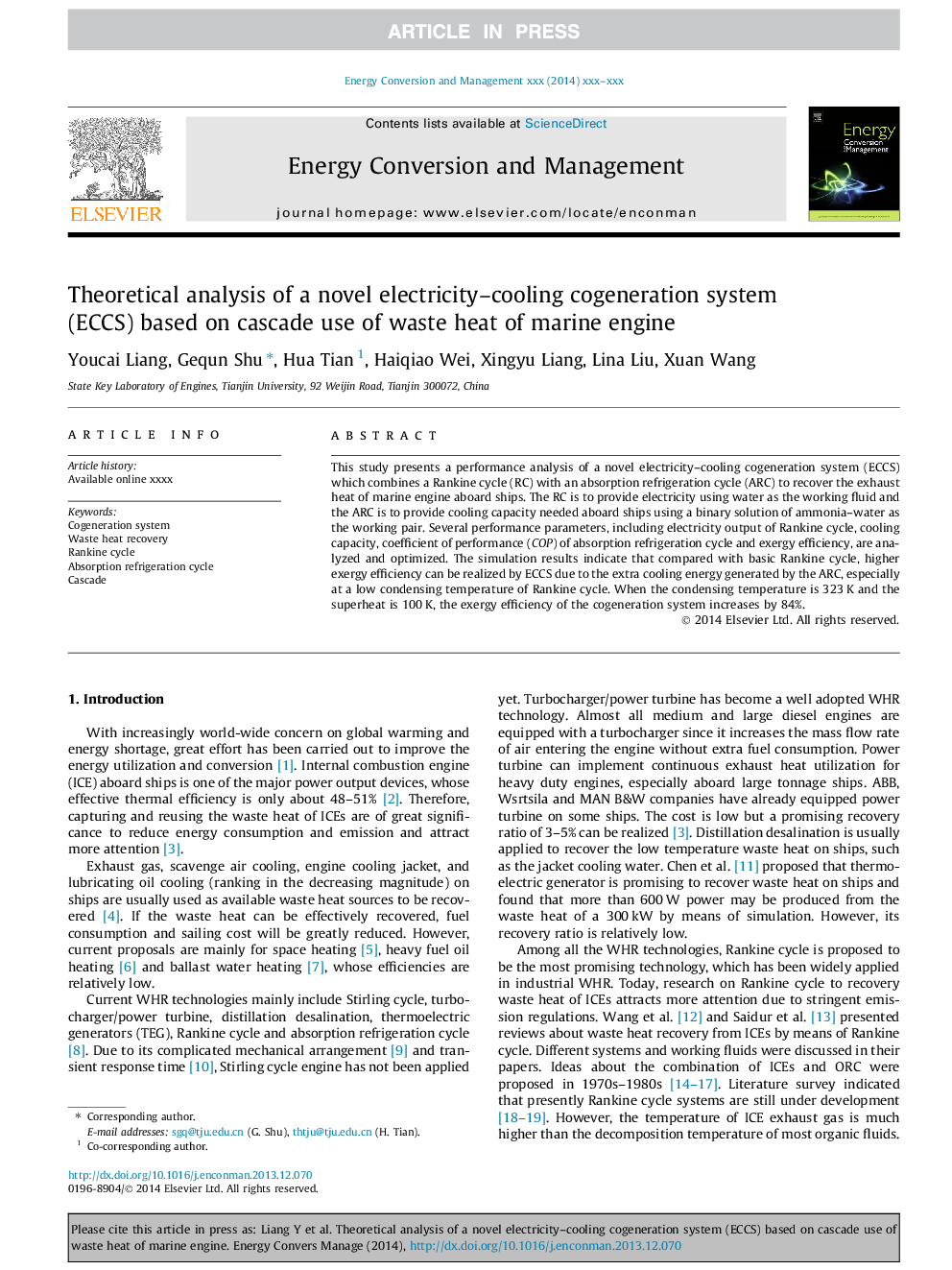| Article ID | Journal | Published Year | Pages | File Type |
|---|---|---|---|---|
| 7164662 | Energy Conversion and Management | 2014 | 7 Pages |
Abstract
This study presents a performance analysis of a novel electricity-cooling cogeneration system (ECCS) which combines a Rankine cycle (RC) with an absorption refrigeration cycle (ARC) to recover the exhaust heat of marine engine aboard ships. The RC is to provide electricity using water as the working fluid and the ARC is to provide cooling capacity needed aboard ships using a binary solution of ammonia-water as the working pair. Several performance parameters, including electricity output of Rankine cycle, cooling capacity, coefficient of performance (COP) of absorption refrigeration cycle and exergy efficiency, are analyzed and optimized. The simulation results indicate that compared with basic Rankine cycle, higher exergy efficiency can be realized by ECCS due to the extra cooling energy generated by the ARC, especially at a low condensing temperature of Rankine cycle. When the condensing temperature is 323Â K and the superheat is 100Â K, the exergy efficiency of the cogeneration system increases by 84%.
Related Topics
Physical Sciences and Engineering
Energy
Energy (General)
Authors
Youcai Liang, Gequn Shu, Hua Tian, Haiqiao Wei, Xingyu Liang, Lina Liu, Xuan Wang,
